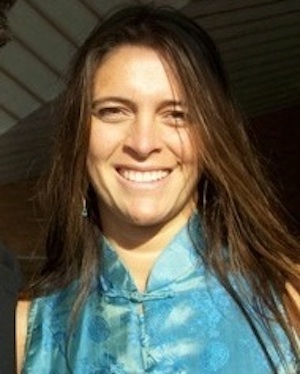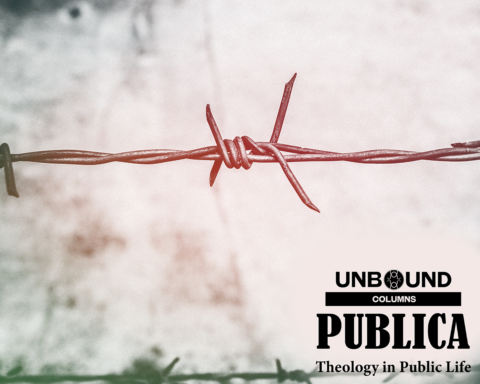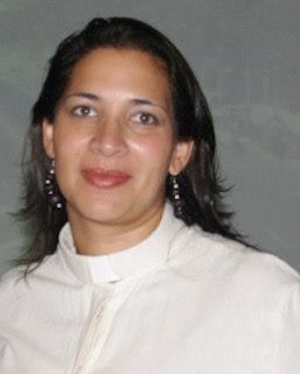 It is easier to join the environmental cause after being inspired by the beauty of the earth than through the ecological crisis alone, just as it may be easier to experience the Glory of God while looking at the stars above than that to perceive Christ’s Good News in the midst of people suffering. However, in the present circumstances, when crisis is the most commonly perceived reality, where can we find the inspiration for an eco-justice ministry?
It is easier to join the environmental cause after being inspired by the beauty of the earth than through the ecological crisis alone, just as it may be easier to experience the Glory of God while looking at the stars above than that to perceive Christ’s Good News in the midst of people suffering. However, in the present circumstances, when crisis is the most commonly perceived reality, where can we find the inspiration for an eco-justice ministry?
As a pastor of a working-class Latino immigrant community, I struggle with this question and often feel as if Christ brings us down from the mountain too quickly after experiencing divine bliss. But perhaps it needs to be this way. How do we know what the earth needs liberation from unless we experience her struggles with her? It is only down with the people that we begin to perceive the obstacles to healing the earth — the roots of the environmental crisis. This work is challenging because progress is slow, but it is real. It may not feel far-reaching alongside the scope of today’s environmental challenges. It becomes the mission of a lifetime. Eco-justice is about creating and living a different story; letting God take charge of the bigger picture. It requires faith, patience, and a commitment that begins at the local level.
Among the immigrant community, I experience the challenges and complexities of being sustainable while living in a consumerist society. The contradictions of our economy and its impact on the earth are not always obvious to the common eye.
Living sustainably in an era of globalization is a privilege very few immigrants in the United States can financially afford. Often, immigrants – many who have fled their homelands due to economic hardship – are emotionally conflicted when they arrive in “the land of opportunity“ and encounter the overabundance of goods at every turn.
My heart aches when we immigrants narrowly interpret our new economic freedom in this country as right to choose among the great diversity of goods because I knowing the earth cannot afford our unlimited wants. It has been said that it would require five planet earths to sustain the world’s population if everyone lived at the level of the average US citizen. There is no way for all to live this way without producing injustice along the way. Things become more complicated when we comprehend that the freedom to consume in the “land of opportunity” is sustained by the very lack of opportunities that made many of us migrate in the first place.
How, then, do we practice eco-justice among immigrant communities? Perhaps my story as an immigrant may provide some clues.
___________________________________________
To inspire a sense of adventure…each month we chose to live without one particular good we had grown accustomed to having but that we knew left a negative environmental trail.
___________________________________________
When my husband and I became aware of the impact our lives were having on the world and her people, we already had a family. He had a good job and I was going to school. We owned a car and rented an apartment in the city. We already “loved the earth,” God’s good Creation, and we sought out ways to enjoy and care for it. But it was an illness in the family and the need to find healing that took us to a deeper level: connecting our healing (loving ourselves) with the needs of the earth (loving our neighbor).
We chose to start slowly and to give ourselves at least a year. To inspire a sense of adventure – especially when we experienced internal resistance to our desire to live more sustainably – each month we chose to live without one particular good we had grown accustomed to having but that we knew left a negative environmental trail. First we decreased our use of electricity, which came from nuclear power plants. In the following months, we made similar efforts to cut down on our use of plastic bags, imported goods and non-organic foods, meat consumption, car use, TV, waste, aerosols, and air conditioning.
This exercise broadened our knowledge of the world and our immediate community. It stimulated our senses and improved our health. We became part of a diverse community seeking just alternatives to a consumerist society. We joined a community garden; we met new neighbors – including farmers, pollinating insects, worms, and soil. We began growing some of our own food. We became members of a Community-Supported Agriculture Farm (CSA). We built our own composting bin at home and began to recycle most of our organic waste. (Incredibly, it did not smell!) Instead of watching TV every night, we went to bed earlier, told stories or played games with the kids by the light of a kerosene lamp. We began walking in our own neighborhood. To carry our food from the supermarket we had to figure out the public transportation system. Not buying new clothes led us to treasure hunting at second hand stores; not using plastic bags, to sporting fashionable cloth bags.
Buying food that is local and in season was perhaps the greatest challenge of all. For new immigrants, having access to our own foods sooths the great sense of loss that comes with leaving family, culture, friends, and landscape behind. And yet, our commitment to sustainable living called us to eat the foods native to this new land. As the year ended, we were becoming profoundly aware of how deeply our lives were entrenched in the consumerist culture, what information we needed to know to seek a different option, and what a privilege it is to have the time and resources to try new things that will help the earth and its people prosper together.
The call of the prophet Jeremiah to the Israelites in exile comes to mind:
“Build houses and settle down; plant gardens and eat what they produce. Marry and have sons and daughters…seek the peace and prosperity of the city to which I have carried you into exile. Pray to the LORD for it, because if it prospers, you too will prosper.” –Jeremiah 29:5-7
 As immigrants in a new land, we must reach a moment when either the contradictions of our lifestyles or a sense of belonging awaken our desire to seek an alternative to the consumerist culture. Churches and organizations need to be ready to lend a hand to immigrant families entering this process. The task is urgent. The Prophet Jeremiah calls us to develop holistic ministries, take risks and trust that God is calling all people – each of us a stranger in God’s Land – to this mission.
As immigrants in a new land, we must reach a moment when either the contradictions of our lifestyles or a sense of belonging awaken our desire to seek an alternative to the consumerist culture. Churches and organizations need to be ready to lend a hand to immigrant families entering this process. The task is urgent. The Prophet Jeremiah calls us to develop holistic ministries, take risks and trust that God is calling all people – each of us a stranger in God’s Land – to this mission.
Years have passed since our family did our year-long exercise. The contradictions of wanting to live simply and living in the city led us from the initial steps of raising worms in the city garden to eventually moving to a rural area to raise chickens, ducks and goats. For us, what made sense was to move deeper into relationship with the farmers and members of a community supported agriculture farm and to create a learning center to help others learn, grow and connect to a more sustainable culture. Stepping out of the consumerist culture requires taking on risks. For us, this meant living without health care and below the federal poverty line as we put more faith in God’s call and the support of the community.
We still eat meat, although it is no longer a central ingredient in our meals. We use electricity and drive two cars. One is a hybrid. I always ask for paper bags and use them for my own recycling. There is still so much to do, so much to avoid, so much to learn, so many connections to make, so much to share and teach, so much justice awaiting our participation. But the good news is this: even in the face of such a daunting task, there are many varied and creative small steps that one person, one family or one community can take to begin the journey towards a more sustainable future.
AUTHOR BIO: Neddy Astudillo is an eco-theologian, a graduate of McCormick Theological Seminary (M.Div.), and a candidate for a D.Min. in Eco-justice Ministries and Eco-spirituality at Drew University. Neddy, a Venezuelan-American, is the pastor of an Ecumenical (ELCA/PCUSA) Latino ministry in Beloit, Wisconsin. Neddy lives in Northern Illinois with her husband Tom Spaulding and their three teenagers, where they moved eleven years ago to help start the Angelic Organics Learning Center, an exciting and engaging place to learn about food, farming, and caring for the earth. As part of her doctoral program, Neddy has taught Eco-Theology in several Latin American seminaries: CEDEPCA in Guatemala, AETE in Perú, and ISEATin Bolivia. Neddy is a co-author of the National Council of Churches’ Declaration “God’s Earth is Sacred”, and of its corresponding book: (2011). Neddy was also published in David Rhoad’s book Earth and Word: Classic Sermons on Saving the Planet. Neddy shares her passion for God’s creation through worship, workshops and a Spanish-language website: eco-justicia.org.
Read more articles in this series.






Unbound Social